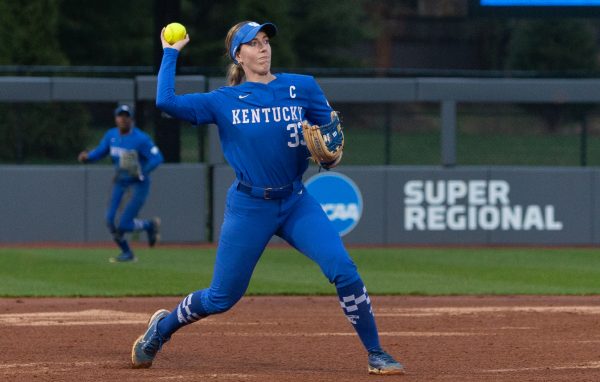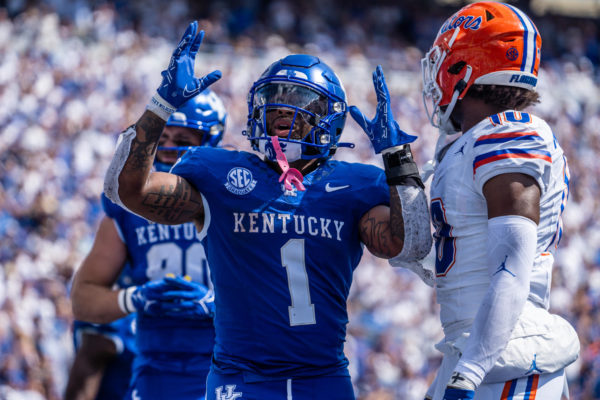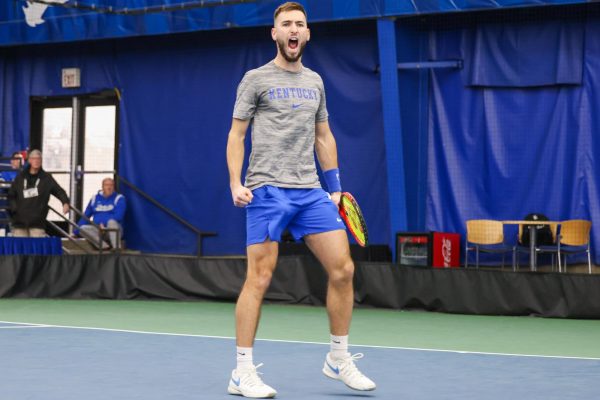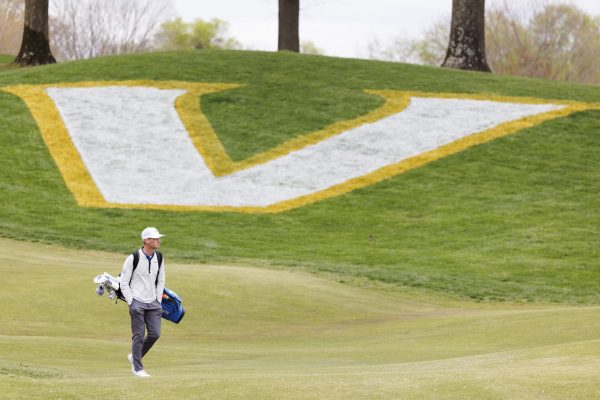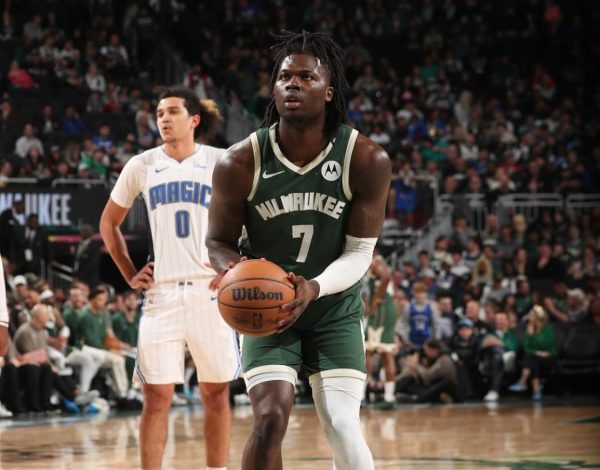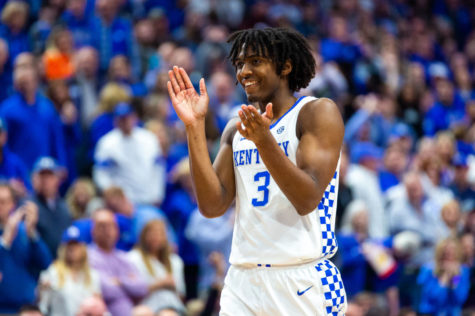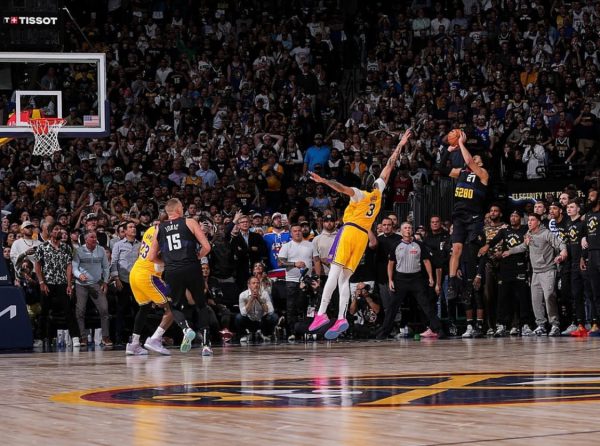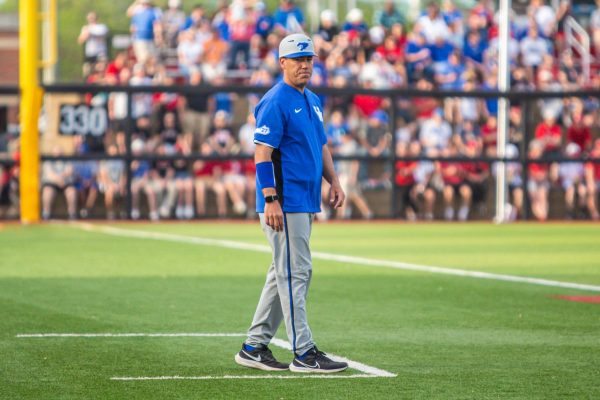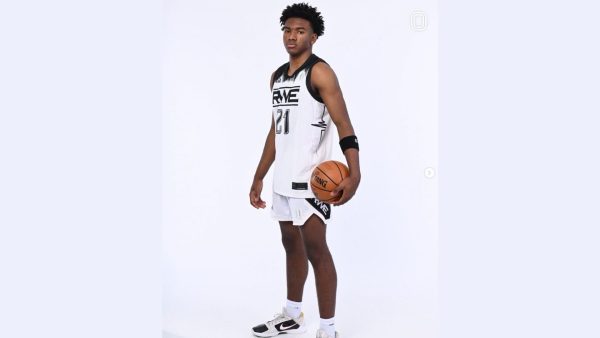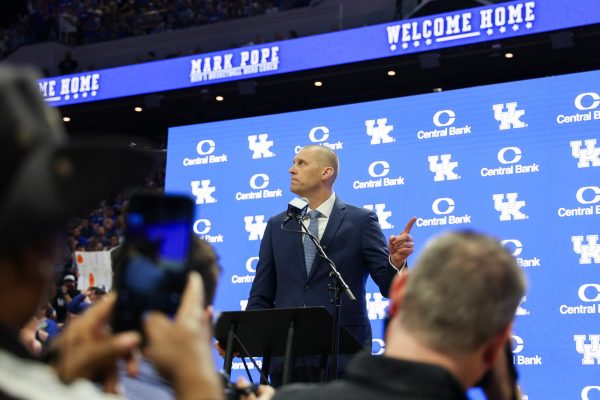The UK vs. NCAA debate shouldn’t have, and didn’t need to, happen
June 17, 2011
Here’s the weirdness about this damn thing: the celebration of Calipari’s 500th/458th victory itself was basically irrelevant. It wasn’t that special. The only thing I remember about it was running around trying to clarify whether 500 included the 42 vacated wins. (It did, and UK’s staff notified the media of it.) I don’t recall the Rupp Arena crowd being particularly moved in this honoring of their coach. For both parties, the actual win was far more important: it was over Florida at a time when UK desperately needed wins. The AP game story’s lead was that Darius Miller hit a shot that could “save the season.” Calipari, too, cared more about the individual game, saying he was enjoying “No. 20” — the win total UK hit for the season — more than 500.
Considering the events of the last few days, in which the dispute over whether or not Calipari has or has not coached a college team to victory 500 times has raged at the forefront of the scene, honoring Calipari in the first place just doesn’t seem worth it. If nothing had happened for it this year, and the vacated wins were taken into account, and Calipari “officially” reached 500 (probably) toward the tail end of next year — would that be any worse at all? Wouldn’t avoiding (another) squabble with the NCAA be worth waiting a calendar year? On a larger scale, remember back to UK winning its 2,000th game: it did not honor that achievement by including games that had to be forfeited years earlier, making everything much simpler and in compliance. The same could have been done with Calipari.
Regardless, that didn’t happen. In reviewing the three instances of correspondence, both sides are largely correct in their standpoint, but both also had moments of fault.
The Minor Thing UK Did Wrong That Allowed This To Happen: Not asking about how honoring Calipari would be received by the NCAA prior to the celebration actually happening. UK asked if it would be all right to say Calipari had 500 wins a few minutes before the buzzer sounded. There may be a reason that email wasn’t sent earlier — Sandy Bell wrote that UK “realized” “during the game” that it would be his 500th, which seems rather absent-minded of UK — but this entire saga would have been prevented if UK could have received clarification before committing to the celebration. UK even acknowledged they should have asked earlier in their timeline.
The Minor Thing The NCAA Did Wrong That Allowed This To Happen: A weirdly worded, less-than-direct response to whether UK could include the vacated victories if they were noted. The NCAA’s Gary Johnson had this to say: “You can say he has 1,000 wins if you want, but if you want to agree with what his official record is, then you have to account for those vacates. This will follow Calipari around now matter at what school he coaches.” The key phrase that got lost in translation: “You have to account for those vacates.” Well, what UK did end up doing (including the wins, but also including an asterisk) did just that: accounted for those vacates. If Johnson had lost some of the smarminess, and just said “You can’t say he has 500 because the NCAA says he doesn’t,” this doesn’t happen.
Interesting Point No. 1: Whether leading a team to victory, only to have it later vacated, can “count.” UK says yes, going with a rather common-sense approach: the victories happened. Vacating them did not make them vanish into thin air. Those 42 times, Calipari’s team still scored more points than the other team, and that makes it count.
The NCAA says no, explaining that because Calipari used players who were ineligible, the wins were achieved through illegal means and thus cannot count.
Interesting Point No. 2: Calipari feels “singled out.” This isn’t necessarily anything new. Calipari’s recent “Radio Silence” campaign and repeated mention of the triumvirate indicates his position. Recall that he seriously considered implementing “Bash Wednesday.” He feels that he is targeted to a higher degree by both the NCAA and the media. Both he and the fans seemingly have a paranoia, which leads to a defense mechanism in which they lash out against anything negative against the program. To which I say: fine. Calipari was coach of the two teams, although he wasn’t found to be at fault. If the perceived targeting of his program makes him paranoid to the point where he takes extra, extra precautions against doing anything that would run afoul of the NCAA — isn’t that good?
Interesting Point No. 3: Other programs are doing/have done what UK did, which is to attribute vacated victories to the coach while noting them. At least, that’s what Sandy Bell says, although she does not specify any schools. If anyone has found specific examples, I’d love to see them. I’m currently looking into it. UPDATE: San Diego State’s official website lists Steve Fisher — who coached at Michigan in the early 90s and had victories vacated — as having 357 victories to start last year. The NCAA website lists Fisher as having 282. A thanks to @kevinwfarris for pointing it out.
Interesting Point No. 4: Just by mentioning Jerry Tipton’s name, the ensuing lashing out was inevitable. As soon as I read that paragraph, I knew fans instantly had a name to make a scapegoat of sorts, and a name familiar with playing that role. But I urge you: don’t. Tipton was doing his job, unlike the rest of us. He was doing nothing different in this particular instance than what Matt Jones did in repeatedly badgering ESPN about Bob Knight, refusing to accept their statement, except that Jones was arguing for UK. The NCAA’s letter was sent about 17 days after the Florida game, and UK’s response was sent a few weeks after that. Tipton inquiring into how the NCAA was handling this didn’t alter the central issue, which was whether or not the 42 vacated wins could count.
Again, I just think this whole ordeal was both entirely detrimental to UK, but also entirely avoidable. If UK and Calipari honestly feel that they are being singled out already, well, doing something that MIGHT irk the NCAA doesn’t seem to be the safest route in avoiding that. This program deals with enough. It shouldn’t have had to deal with more over a petty issue, and now we get to “celebrate” all over again, probably next year. I have no idea whether it will be awkward or a giant “Eff You” to the NCAA, but the issue will have to be revisited once more. And that’s one more than needed.













































































































































